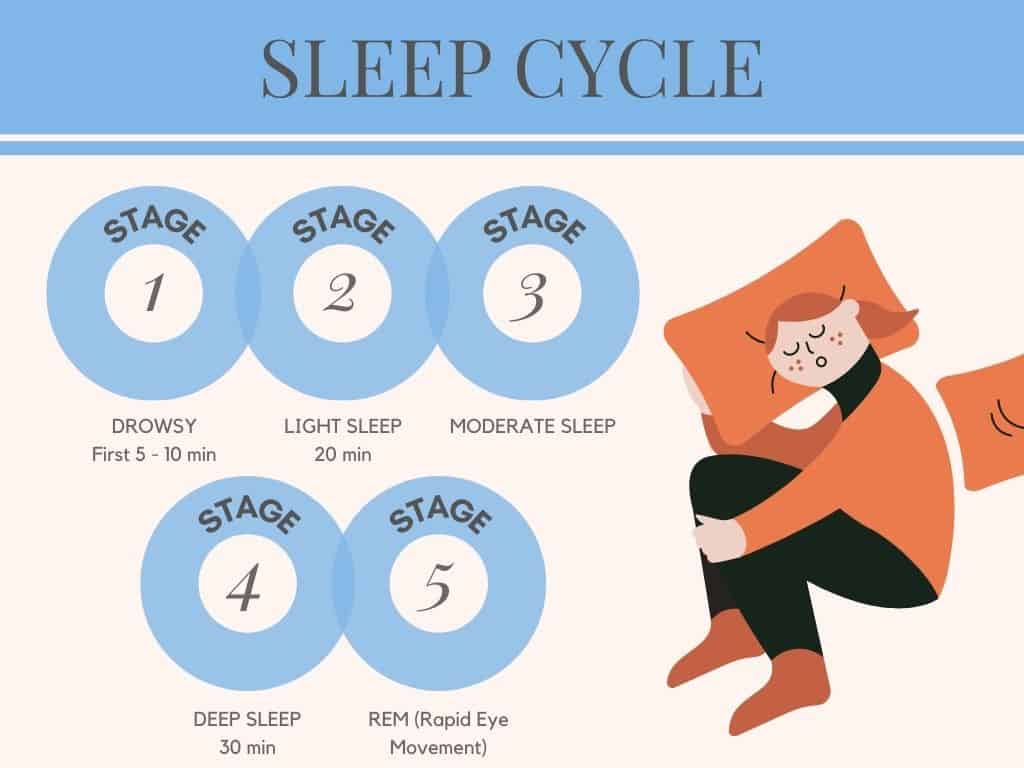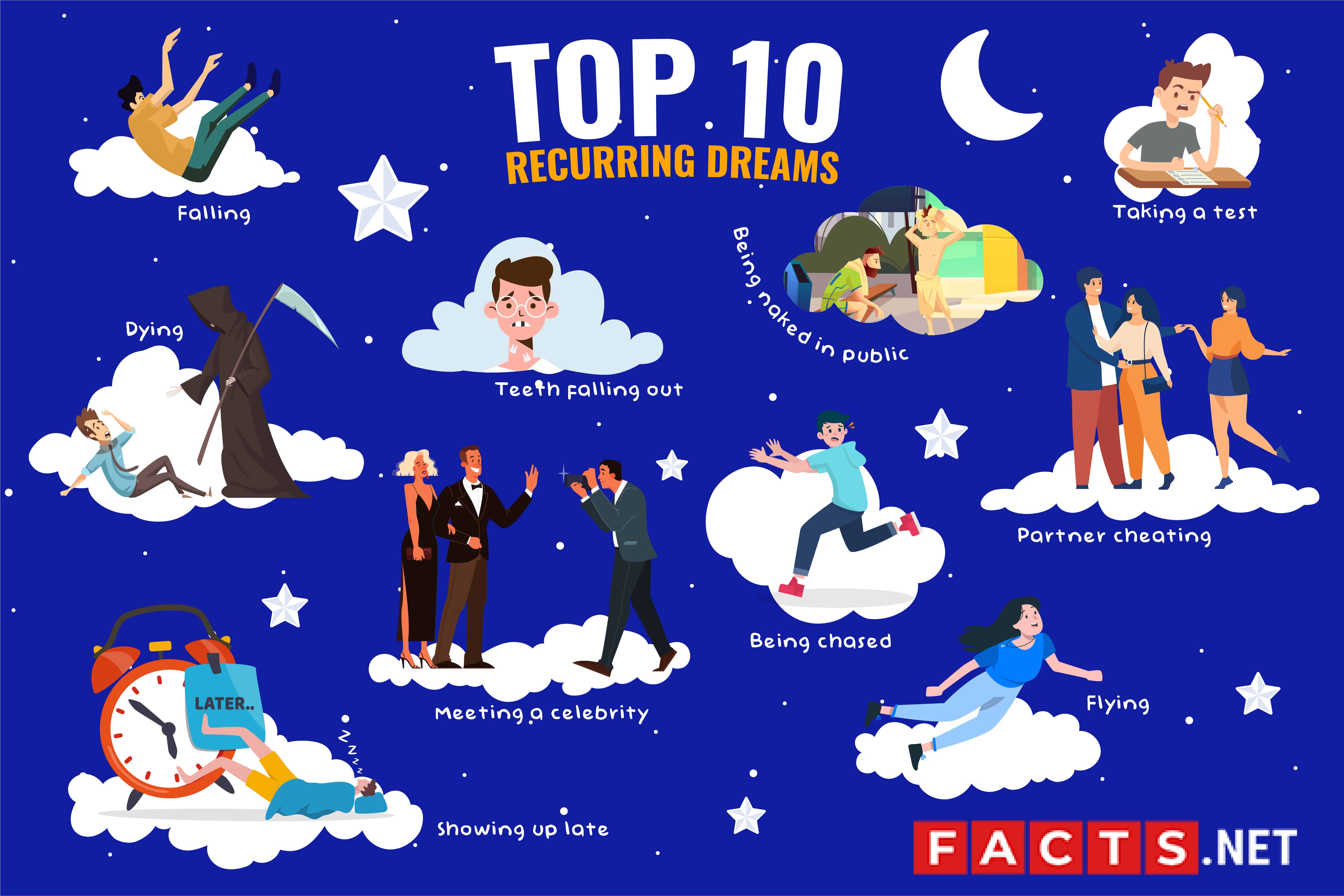
For a long time, why people dream has fascinated researchers and scientists. In spite of so many facts about dreams, and dream-related studies, processed over numerous years – at the end of the day we really know so little about dreams. Can they really tell the future? Are they messages from a higher power?
Some people believe that dreams are symbolic, and have underlying messages, but to others, they are just byproducts of our brain and sleeping. Whether you believe that dreams are a product of science, or are purely mystical in nature – it’s an experience we all share.
Whether or not you remember your dreams, you do dream every night. In reality, everybody dreams; it’s just that some people remember their dreams, and others don’t. Do you know that humans spend one-third of our lives sleeping and dreaming? In many ways, it has become a major part of our lives.
And since it is such a huge part of our lives, it’s important that we try our best to understand them, and to understand why we dream. Through it, we get to know ourselves, and the people in our lives a whole lot better.
On that note, here are 50 facts about dreams ranging from fascinating to surprising?
- The length of dreams varies, some last for seconds, others can be as long as 20 to 30 minutes.
- An average person can have around 3 to 5 dreams per night.
- A person can have about 1,460 dreams a year.
- An infant’s sleep, whether inside their mom’s womb or after being born, is made up of 80% rapid eye movement sleep (REM).
- Most people dream every 90 minutes.
- Some dreams are frightening, while others are joyful and sad.
- Some people believe that dreams have an underlying message.
- Dreams have various content.
- Many people try to interpret their dreams.
- Some dreams are illogical or senseless.
- Dreams can take on different forms.
- In general, dreams are normal and have no negative effects on sleep.
- A nightmare is a bad dream, and can negatively affect sleep if they happen frequently.
- Some dreams are based on one’s memories.
- Most of the time people are not aware they are dreaming.
- The most common dreams are just pictures or visuals with little or no sound at all.
- People who lose their eyesight can still see images in their dreams.
- Babies spend about half of their sleep dreaming.
- Humans are more likely to dream of people they are familiar with, or have seen on television.
- Although sometimes people dream in color, most people dream in black and white.
Dream is a mental activity.
There is no specific answer yet why people dream. But according to some theories, dreams happen during REM stage of sleep. REM (rapid eye movement) is a stage when people are sleeping yet their minds are still active just like when they are awake. It is also believed that dreams in the REM stage are clearer and more memorable.

Lucid dream is when dreamers know they are dreaming.
A lucid dream is like directing a movie in your sleep. The person is aware they are dreaming. In addition, dreams appear to be clear and real, and people can even control what they do in the dream. Some studies suggest that lucid dreams seldom happen, and only about half of the human population experiences this.
False awakening dream is when someone mistakenly thinks they have woken up.
This type of dream is when someone thinks they have woken up and does actions like cooking, eating, cleaning, or using the bathroom, while, in fact, they are still sleeping.
Interestingly, false awakening dreams can happen repeatedly, sometimes even up to 10 times where the dreamer can’t tell if they are already awake or not.
A daydream occurs while someone is awake.

The difference between daydreams and other types of dreams is that it happens while the person is awake. Daydreams occur when our minds wander and divert to other things – whether physical or mental.
Although people sometimes imagine how they see themselves in the past and in the future while they are awake, imagination and daydreaming are somehow the same. However, daydreaming is less controllable, while imagination is putting things, or working on things, while thinking.
Premonition dreams are like warnings.
To some people, premonition dreams, also called precognitive dreams, serve as warnings. It is a dream that tells us that something good or bad is going to happen in the near future. Some say that this type of dream carries messages like death, war, or misfortune in someone’s life.
Sleepwalking is not a type of dream.
Contrary to what most people believe, sleepwalking is a disorder and not part of the dreaming stage of sleep. Sleepwalking often occurs in school-age children, and is more common in boys. However, if sleepwalking happens later in life, this may be due to stress or other medical cases.

Falling is one of the most common dreams.
Falling is one of the most common dreams people experience. Some dream experts believe that this may symbolize things in life that humans can’t control, or aspects they struggle in. Normally, dreamers do not fall to the bottom, but continue to fall, until they wake up.
Being chased is another common dream theme.
Another ordinary or common dream is being chased, which may mean different things. According to some dream interpreters, this could mean running from or avoiding a person or issue; someone has to face something that they continually run away from, while others interpret this as a danger that is about to happen.
Dreams reveal humans' unconscious desires.
According to the Austrian neurologist Sigmund Freud, our dreams reveal our thoughts, unconscious desires, and motivations. Moreover, he also mentioned that people use dreams as a way to satisfy their wants and desires which are not acceptable to society.
On the other hand, some experts claim that dreams have no connection with our thoughts and emotions.
We can't read, write, or speak while dreaming.
There is a part of the human brain that is responsible for language interpretation, and it’s much less active while we sleep. For instance, some people know that they are talking or communicating in their dreams, but in general, they don’t really hear sounds or see anyone talking. The same thing happens, in reading, writing, or even telling time. People only get the main idea of the dream, but as a whole, reading words or even telling the exact time is nearly impossible.
Alcohol and medication could be a reason why most dreams are forgotten.
There are few explanations why people don’t remember most of their dreams. One reason is that the REM or rapid eye movement is not occurring. Similarly, medication, particularly antidepressants, affect the occurrence of REM. Alcohol can also affect the REM stage of a person while sleeping.
Waking up straight from a dream increases dream recall.
It is widely known that remembering dreams is difficult. Hence, waking up right after having a dream will boost memory recall. A 2011 study showed that people who have theta brain wave activity, or slow-paced activity after waking up from REM sleep, will have better dream recall.
Choosing a sleep pattern is a trick to remember dreams.
According to a psychologist, a person must choose the right sleep pattern for them to better recall their dreams upon waking up. In addition, sleeping well at night also enhances your dream recall. Most people dream during their 4 to 6 hours of sleep. As sleep progresses, the period of REM becomes longer, which leads to more interesting and vivid dreams.
Waking up with an alarm clock hinders dream recall.

Based on research, waking up with the sound of an alarm clock instantly terminates sleep, affecting one’s consciousness and helping one to become more focused on the time of the day. These conditions of waking up make dream recall difficult and even impossible.
Drinking a lot of water before bedtime enhances dream recall.
Some psychologists claim that people who wake up during their sleeping routine are more likely to remember their dreams, than those who have straight 8-hour sleep. Hence, drinking three glasses of water before going to bed will cause you to urinate multiple times throughout your sleep and force you to wake up.
Stress may result in bizarre dreams.
Have you ever wonder why some of your dreams are so strange? Generally, bizarre dreams may be a result of stress or routine change. Also, watching a scary movie or reading a newspaper before going to bed, may cause strange dreams to happen.
Dreams help people learn.
Some experts believe that we actually learn while we sleep, and that dreaming helps people to process new information or even learn a new skill. According to research, taking a nap after learning a new task, will make you ten times better at that task. Amazing facts about dreams!
Dreams can ease painful memories.
A study says that dreams are like overnight therapy, which lessens painful emotions. It’s also reported that after a dream, people become less emotional and feel better the next morning. This suggests that dreams may help people cope with difficult situations.
People who are born blind are more likely to have nightmares.
According to reports, people who are blind since birth have no understanding of how to see things in their conscious state, so they can’t also see in their dreams.
However, they can “picture” their dreams based on their experiences. They are also more likely to have nightmares than dreams. On a more interesting note, blind people who lose their eyesight later in life can still dream visually.
Animals have dreams, too.

Who says only humans can dream? Almost all animals, whether aquatic, terrestrial, or aerial, engage in mental activity while sleeping, just like humans.
Hence, it’s not uncommon to see dogs’ paws move like they’re running while sleeping.
Women are more likely to remember dreams than men.
Based on various studies, women are more often to have dreams than men. It is also found that approximately 95% of women can recall the content and storylines of their dreams upon waking up, while about 80% of men can recall their dreams.
Men and women dream differently.
According to researchers, men often dream about sex, while women frequently dream of being chased. In addition, women experience more nightmares, and are more likely to dream about failing in an exam, being paralyzed by fear, and seeing someone dying. On the other hand, most men dream that they are superheroes.
Dreams that we don't remember may appear as Déjà vu.
Have you visited a place and it seems familiar and can’t figure out why? That could be Déjà vu, a French term that means “already seen,” a feeling of when something seems familiar, even if you haven’t seen or experienced it before.
Some people believe that Déjà vu could be the dreams that we cannot recall and are sometimes thought of as precognitive dreams.
Grief dreams are common during holidays.
“Grief dreams,” are dreams about a deceased love one, but they appear to be healthy, younger, or at their peak. According to a researcher, grief dreams are very common during holidays. Around 86% of people who lost a loved one have experienced this.
Hypnic jerk is falling while sleeping or dreaming.

A hypnic jerk is a muscle twitch or tremble, the feeling of falling while sleeping or dreaming. It is a normal reaction caused by too much caffeine, discomfort in sleeping, or tiredness. This usually happens in the first few minutes of sleep, and is very common to children.
It is impossible to scream while dreaming.
If you often experience nightmares, then you know it feels like trying to scream in your dreams. The inability to scream, run, punch, and walk while dreaming or sleeping is because the motor neurons are switched off while sleeping.
Motor neurons mainly control muscles and glands. Since the tongue and throat are muscles too, you cannot shout in your dreams.
Negative dreams are more common than positive ones.
Studies on dreams reveal that negative dreams occur more often than positive dreams. Moreover, the study also disclosed that threatening events in dreams are also more frequent and severe than in real life.
The idea of making Google came to Larry Page in a dream.
According to the American scientist and Internet entrepreneur, Larry Page, the idea of creating Google actually came in his dream. When he was only 22 years old, he had a dream that he managed to download the entire web and kept all those links.
Vitamin B6 can help promote dream vividness.
Vitamin B6 or pyridoxine, like melatonin, is a helpful supplement for sleep induction. It can make you fall asleep faster, especially if you’re having a hard time falling asleep.
According to some researchers, it can also promote dream recall and vividness. You can remember your dreams better and clearer!
Researchers and psychologists have different views about dreams.
Researchers and psychologists have different definitions and ideas about dreams. Some say it is a manifestation of our emotions. Others say that dreams are completely meaningless; the dream is a memory filter, that when we sleep, our brains store all the memories and information we have. It also suggests that dreams contain a rebound effect and withholding of something leads to dreaming it.
Was this page helpful?
Our commitment to delivering trustworthy and engaging content is at the heart of what we do. Each fact on our site is contributed by real users like you, bringing a wealth of diverse insights and information. To ensure the highest standards of accuracy and reliability, our dedicated editors meticulously review each submission. This process guarantees that the facts we share are not only fascinating but also credible. Trust in our commitment to quality and authenticity as you explore and learn with us.


